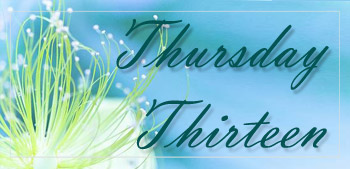
I did not write these tips. These tips, and many more like these, can be found at Common Errors in English. So, if you disagree with these rules, then please, don’t kill the messenger. These are here just for your learning/entertainment, nothing more, and nothing less.
Now that you know my disclaimer, let’s move on to the juicy stuff … *rubs hands together in glee* …
(Some of these seem pretty obvious – but if you read as many blogs as I do – you’d be surprised how many confused people there are out there. I don’t care how much it is argued, grammatically incorrect writing makes writers look foolish).
1. BULLION/BOUILLON: Gold bricks are bullion. Boil down meat stock to get bouillon. It’s an expensive mistake to confuse bullion with bouillon in a recipe.
2. BAILOUT/BAIL OUT: Whether you are bailing out a rowboat or a bank, use the two-word spelling to describe the action of doing it (the verb form): “we need to bail out the boat before we can go fishing.”
But to label the activity itself (the noun form), use the one-word spelling: “this bailout is going to be expensive.”
3. BLINDSIGHTED/BLINDSIDED: When you are struck by surprise from an unexpected direction, you are blindsided, as if from your blind side. Do not be confused by the many punning titles using the deliberate misspelling “blindsighted” into using the latter spelling for this meaning.
4. BOUYANT/BUOYANT: Buoys are buoyant. In the older pronunciation of “buoyant” as “bwoyant” this unusual spelling made more sense. Now that the pronunciation has shifted to “boyant” we have to keep reminding ourselves that the U comes before the O. The root noun, however, though often pronounced “boy” is more traditionally pronounced “BOO-ee.”
5. BREACH/BREECH: Substitute a K for the CH in “breach” to remind you that the word has to do with breakage: you can breach (break through) a dam or breach (violate the terms of) a contract. As a noun, a breach is something broken off or open, as in a breach in a military line during combat.
“Breech” however, refers to rear ends, as in “breeches” (slang spelling “britches” ). Thus “breech cloth,” “breech birth,” or “breech-loading gun.”
“Once more unto the breach, dear friends,” means “let’s charge into the gap in the enemy’s defenses,” not “let’s reach into our pants again.”
6. BAITED BREATH/BATED BREATH: Although the odor of the chocolate truffle you just ate may be irresistible bait to your beloved, the proper expression is “bated breath.” “Bated” here means “held, abated.” You do something with bated breath when you’re so tense you’re holding your breath.
7. BEHAVIORS: “Behavior” has always referred to patterns of action, including multiple actions, and did not have a separate plural form until social scientists created it. Unless you are writing in psychology, sociology, anthropology, or a related field, it is better to avoid the use of “behaviors” in your writing.
See also peoples.
8. BASED AROUND, BASED OFF OF/BASED ON: You can build a structure around a center; but bases go on the bottom of things, so you can’t base something around something else.
Similarly, you can build something off of a starting point, but you can’t base anything off of anything. Something is always based on something else.
9. BOUGHTEN/BOUGHT: “Bought, ” not “boughten,” is the past tense of “buy.” “Store-bought,” a colloquial expression for “not home-made,” is already not formal English; but it is not improved by being turned into “store-boughten.”
10. Calvary/cavalry: “Calvary,” always capitalized, is the hill on which Jesus was crucified. It means “hill of skulls.” Soldiers mounted on horseback are cavalry.
11. CATCH 22: People familiar with Joseph Heller’s novel are irritated when they see “Catch-22” used to label any simple hitch or problem rather than this sort of circular predicament: you can’t get published until you have an agent, and you can’t get an agent until you’ve been published. “There’s a catch” will do fine for most other situations.
12. COMPRISED OF/COMPOSED OF: Although “comprise” is used primarily to mean “to include,” it is also often stretched to mean “is made up of”—a meaning that some critics object to. The most cautious route is to avoid using “of” after any form of “comprise” and substitute “is composed of” in sentences like this: “Jimmy’s paper on Marxism was composed entirely of sentences copied off the Marx Brothers Home Page.”
13. CELIBATE/CHASTE: Believe it or not, you can be celibate without being chaste, and chaste without being celibate. A celibate person is merely unmarried, usually (but not always) because of a vow of celibacy. The traditional assumption is that such a person is not having sex with anyone, which leads many to confuse the word with “chaste,” denoting someone who does not have illicit sex. A woman could have wild sex twice a day with her lawful husband and technically still be chaste, though the word is more often used to imply a general abstemiousness from sex and sexuality.
By the by, if you’re hungry for more writing tips, you’ll find some EXCELLENT advice/lessons at Daily Writing Tips.
Visit the new Thursday 13 hub for more TT participants.
